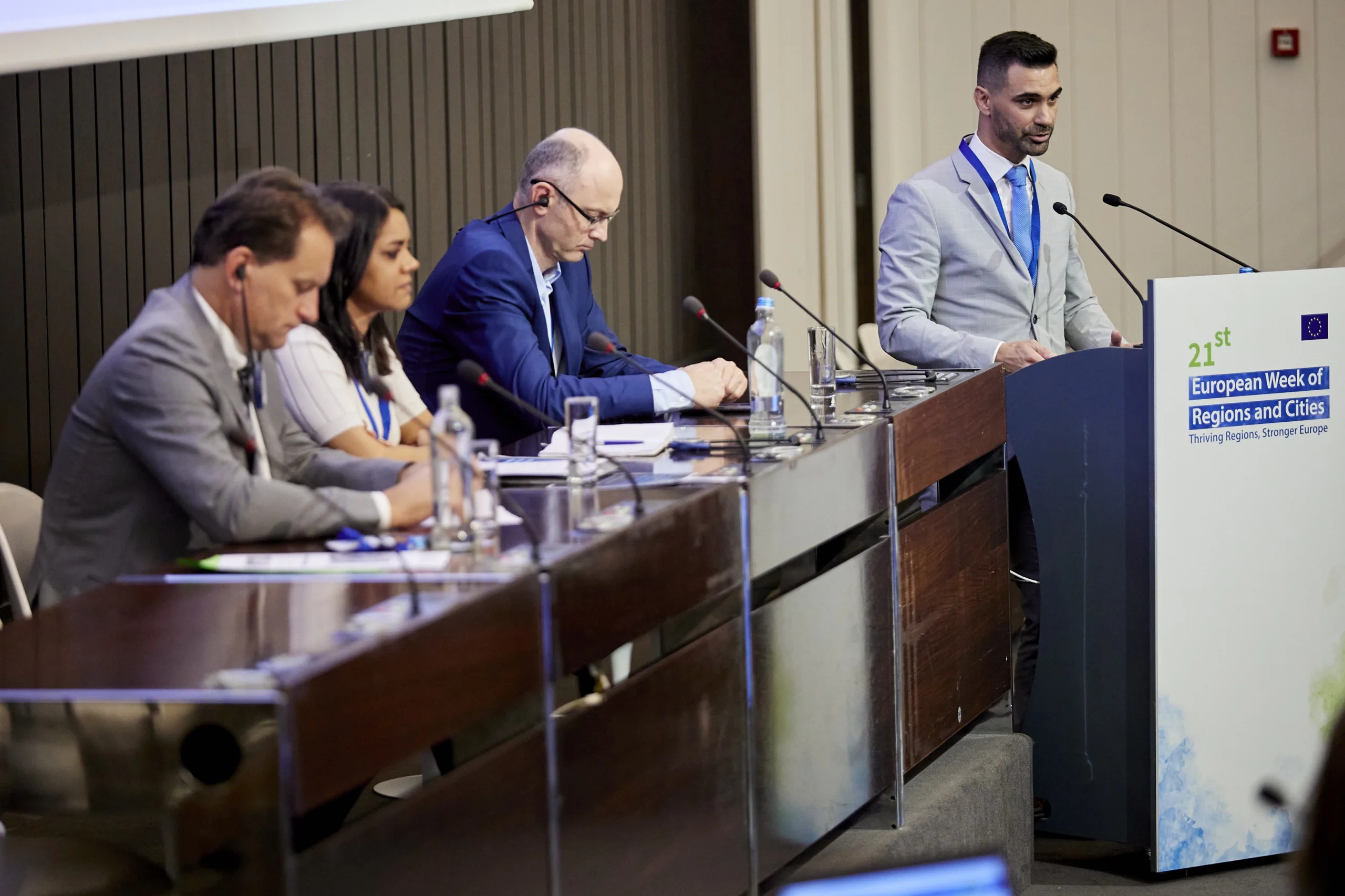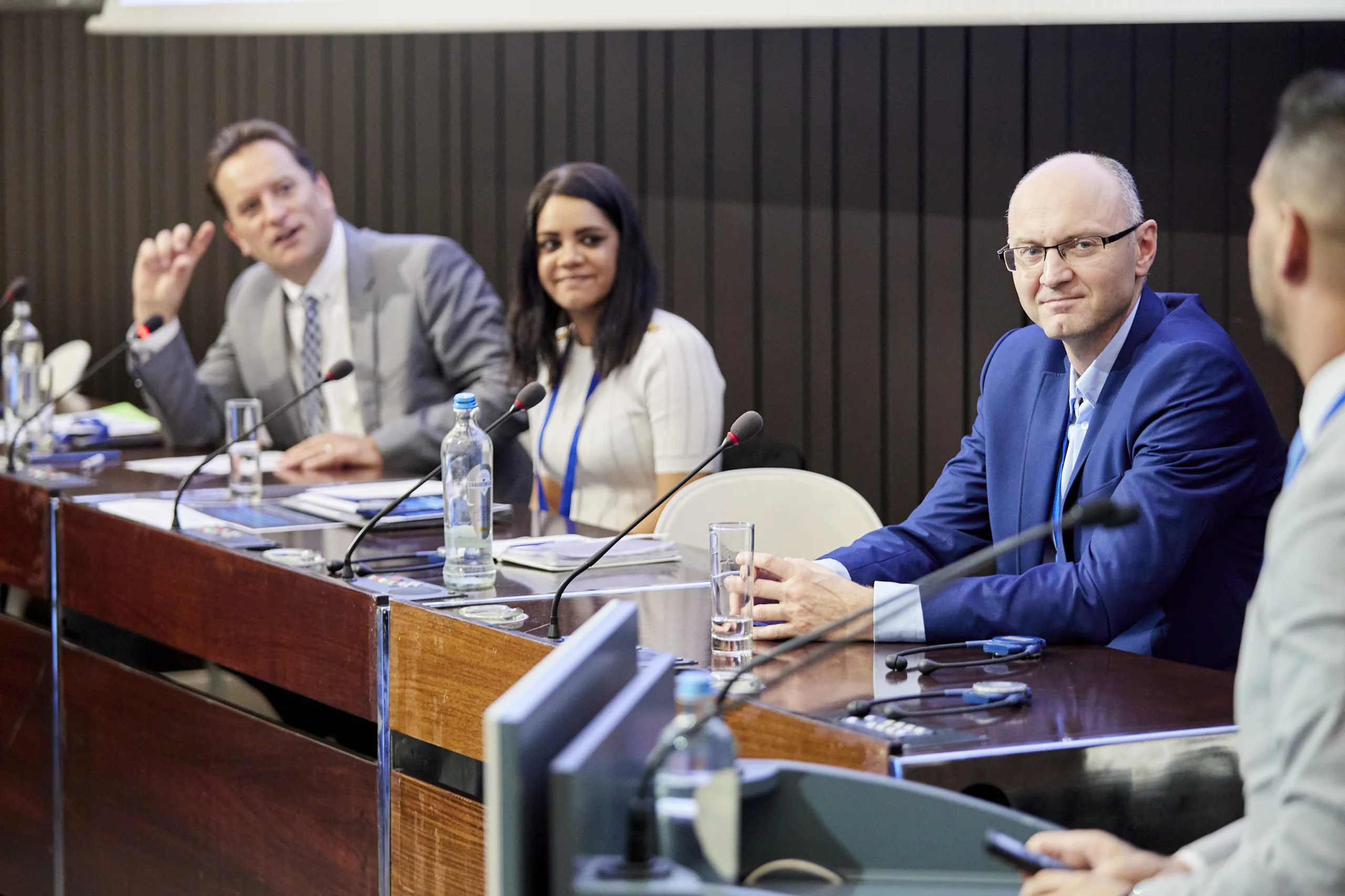 Share this!
Share this!The European Week of Regions and Cities offered many opportunities to discuss topics relevant to the future of Europe and its development to representatives and professionals engaged in EU regional affairs. Several events took place throughout the week consisting of presentations, debates, speech panel discussions and tasting booths.
One of the many matters addressed was the promotion of skills and mobility in the outermost regions and how it can benefit their development. The “Promoting skills and learning mobility as an opportunity for the development of outermost regions” event featured an in-depth discussion on the importance of up-skilling, not only in Europe as a whole but also specifically in more disadvantaged regions that are in need of better-trained professionals to facilitate their development. Emphasis was given to the European Year of Skills and the many steps the EU is already taking in order to ensure that Europeans have more opportunities to develop said skills and apply them in the labour market.

Skill Shortages
During the event, Jan Varchola, Head of Sector at the European Commission, discussed the challenges created by the lack of skilled individuals in the EU. According to Varchola, up-skilling in the digital sector is one of the main priorities of the European Commission. Although around 90% of jobs require digital skills, the number of prospects meeting the requirements remains rather low. Skill shortages are creating many issues in the job-seeking process for both candidates and companies, given the discrepancy between requisites and applicants’ competencies.
Moreover, Varchola mentioned the European Green Deal and the skills necessary for a smooth transition all over Europe. The Commission believe that the Green Deal will create more job opportunities than it will destroy, regardless of the big changes that will take place on the continent. Consequently, candidates need to be better prepared and hold the skills required by these newly-opened positions. Learning for the Green Transition represents an important step in the process of preparing for the future. A better understanding of skill intelligence could be advantageous in the advancement of the labour market and of society as a whole.
Outermost Regions
The need for more skilled individuals was emphasised during the event by two other guest speakers. Salima Desai, representing Réunion Island, and Eládio Braga, from Azores, addressed the many issues regarding skill shortages encountered in their respective regions. Both speakers explained that their regions are dealing with numerous problems including high unemployment rates among youth. According to them, outermost regions such as their islands are bound to encounter more difficulties in preparing the youth for the job market. A smaller and more isolated region offers fewer opportunities to young people due to a smaller selection of vocational schools, universities, and even jobs.
Both Azores and Réunion Island have begun a long process of attracting youth to up-skill and gain new knowledge necessary for the current and future labour market. According to Braga, Regional Government of the Azores, the region, similarly to many other regions of its kind, has seen a rise in early school leaving (usually between 18 and 24 years old), resulting in less qualified young people who are unable to get hired. In order to solve this paramount problem, Azores have begun to adopt some regional youth policies so as to offer more support to young people. The local Government has initiated different programmes and projects directed to youth that are meant to encourage them to up-skill and gain valuable experience. Mobility programmes are one of the more popular options that appear to attract most young people.
As regards Réunion Island, Salima Desai, Representative of National Council for Actions towards mobility of workers from RéunionIsland, explained the importance of mobility programmes among youth. She expressed her agreement with the information provided by Braga and further emphasised the many issues people face concerning the labour market in outermost regions. Similarly to their Azorean counterparts, the citizens of Réunion Island are facing high unemployment rates. While there are many factors causing this issue, the paramount factor is strongly related to skill shortages and people inadequately prepared for the labour market. For this reason, local authorities have begun a long process of implementing mobility programmes that the young people from the Island can benefit from in order to better prepare them for the requisites of the job market.
Solutions
The issue of skill shortages in Europe has already been acknowledged by competent authorities. Consequently, a few measures have already been implemented, such as mobility programmes and vocational training readily available for those interested in up-skilling and gaining expertise. These same mobility programmes should also aid outermost regions in better-preparing young people for the labour market. As discussed by the speakers, the paramount role played by mobility programmes in the education and training of young individuals must be acknowledged by all regions, regarding their geographical or economic position. However, in the case of outermost regions especially, the facilitation of these programmes must be prioritised in order to better the low employment rates.
Eurodyssey
Eurodyssey, AER’s flagship youth mobility programme, provides paid traineeships, including accommodation and language training, but also cultural and social activities, to young people in the participating regions. The programme has been operating between the participating regions since 1985, providing valuable opportunities to those looking to up-skill and gain expertise in different fields through traineeships. Given its extensive activity in Europe, Eurodyssey represents a one-of-a-kind chance for youth to get an insight into the labour market, while also enjoying the many other benefits of the programme, including remuneration, language training, assistance with accommodation, and many more. Moreover, a work experience abroad of this kind is particularly advantageous for citizens of outermost regions, as it allows them to directly observe the manner in which other European regions function, as well as the manner in which companies from different countries view jobs in their respective fields. This knowledge can later be applied to the labour market of their home region, facilitating its development.
It is paramount to mention the fact that Eurodyssey has many participants that qualify as outermost regions, including the Azores, discussed during the event. Regardless of the region of origin or destination, Eurodyssey trainees have had the opportunity to explore life in a different country and indirectly contribute to the development of both regions through their Eurodyssey traineeship. Consequently, the AER encourages those interested in having an opportunity of this kind to look into applying for a Eurodyssey traineeship.
